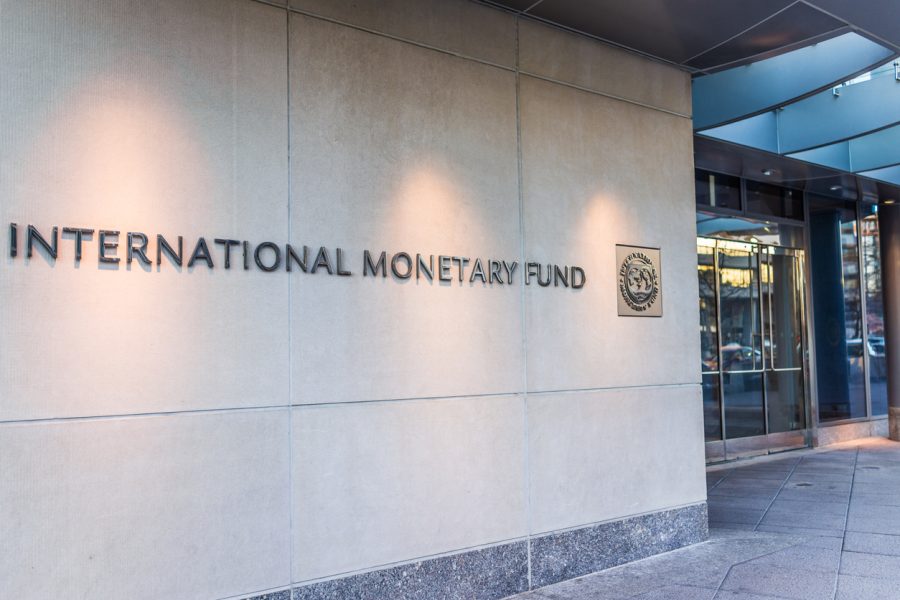
Pakistan's talks with IMF over bailout package hit roadblock

The cash-strapped Pakistan government’s talks with the IMF to secure a bailout package to avert a nearing sovereign default hit a snag as the two sides remained short of concluding external financing estimates and precise domestic fiscal measures, according to a media report on Thursday.
IMF reservations on final action plan
A clear roadmap on external financing and domestic budgetary steps, coupled with substantial energy cost adjustments, should have led to sharing of a draft Memorandum of Economic and Fiscal Policies (MEFP) by the visiting IMF mission with the authorities at least a day before scheduled conclusion of talks on February 9, reported the Dawn newspaper.
“As of Wednesday night, we have not received the draft MEFP,” said a senior government official. He added that IMF reservations on final plan of action both in terms of fiscal measures and external funding sources were still there.
Also read: Pakistan on brink of economic collapse as IMF delegation lands today
Pakistan entered a USD 6 billion IMF programme during Imran Khan’s government in 2019, which was increased to USD 7 billion last year. The programme’s ninth review is currently pending with talks being held between IMF officials and the government for the release of USD 1.18 billion.
Close to sealing the deal: Pak govt
However, Minister of State for Finance and Revenue Aisha Ghaus Pasha said, “We are very close to the finalisation.” She said the MEFP would be handed over to Pakistan by the IMF once all issues are finally settled. She said a lot of issues had been sorted and they required clarity on some of them that the government team was trying to address.
In a written statement, the Finance Ministry said the talks with the IMF continued on Wednesday and focused on fiscal table, financing, etc. There is a broad consensus on the reform actions and measures. It added the mission chief also called on the finance minister and briefed him about the talks.
The mission is working on putting it all together and will finalise the MEFP, said the finance secretary, who declined to comment on whether the scheduled talks would be extended to achieve a staff-level agreement.
Also read: Pakistan’s growing politico-economic crisis, IMF terms could fuel instability in region: Experts
IMF agrees to relax fiscal plan
Sources said the IMF had agreed to relax fiscal plan to the extent of about Rs 500 billion spending on flood recovery, leaving about Rs 600 billion worth of deficit in primary balance to be met through expenditure cuts and additional taxation measures.
The IMF was, however, still not confident about external financing commitments, particularly from the friendly countries – Saudi Arabia, the UAE and China – besides some other multilateral funding. The IMF also wanted to see upfront implementation of increase in electricity and gas rates given the legacy of unfulfilled commitments.
The government has agreed to the required power tariff adjustment to cover about Rs 950bn gap for the current fiscal year, but had yet to work out precise burden for various categories and cross-subsidies to protected consumers and the extent of consumption under this category.
No additional tax burden on common man
Informed sources said the visiting IMF mission, led by Nathan Porter, also had a virtual session with Prime Minister Shahbaz Sharif, besides a face-to-face engagement with Finance Minister Ishaq Dar. The mission was assured of complete implementation of outstanding measures, including increase in electricity tariff of about Rs 7.65 per unit in average base tariff, coupled with quarterly adjustments beginning with over Rs 3 per unit and then scaling down.
Also read: Pakistan, another Sri Lanka in the making?
The IMF mission is reported to have cleared gas tariff adjustment that should cover at least the flow of circular debt in the first go. That would mean about Rs 100 per unit average increase in gas rates as determined by the Oil & Gas Regulatory Authority (Ogra).
Pasha said the government was trying its best to insulate the common man from further burden of taxation or electricity tariff that would be transferred to the people who had the capacity to pay and to keep the impact for common people at a the minimal, if it is unavoidable.
She said the approval had been secured from the prime minister for upcoming decisions required under the IMF programme because the IMF agreement was Pakistan’s unavoidable necessity. She said the talks with the visiting mission were now heading towards conclusion, the newspaper said.
(With Agency inputs)

